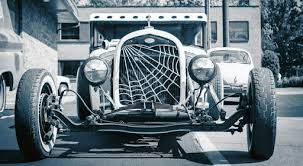Conserving Classic Cars for Future Generations 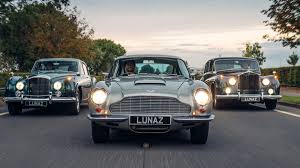
Classic cars are more than just machines; they are tangible pieces of history, embodying the craftsmanship, design philosophies, and cultural values of their respective eras. As the automotive industry evolves, the preservation of classic cars becomes increasingly important. This exploration will delve into the significance of conserving classic cars, the challenges involved, various methods of preservation, and the cultural and educational impacts of maintaining these automotive treasures for future generations.
The Significance of Classic Cars
- Historical Value
Classic cars serve as historical artifacts, reflecting the technological advancements and design trends of their time. Vehicles like the Ford Model T, the Volkswagen Beetle, and the Chevrolet Corvette encapsulate pivotal moments in automotive history and American culture. By conserving these cars, we ensure that future generations can appreciate the evolution of engineering and aesthetics in the automotive world.
- Cultural Heritage
Classic cars often symbolize broader cultural narratives, representing social movements, economic conditions, and lifestyle changes. For instance, muscle cars from the 1960s and 1970s evoke the spirit of American freedom and individuality, while luxury cars reflect societal aspirations. Conserving these vehicles allows us to maintain a connection to our past and understand the cultural contexts in which these cars were produced.
Challenges in Conservation
- Environmental Factors
Classic cars are susceptible to damage from environmental factors such as humidity, temperature fluctuations, and exposure to sunlight. Rust, mold, and degradation of materials like leather and rubber can compromise the integrity of these vehicles. Therefore, proper storage conditions are crucial for conservation efforts.
- Parts Availability
As vehicles age, sourcing replacement parts becomes increasingly challenging. Many classic cars were produced in limited numbers, and original parts may be difficult to find. Additionally, some manufacturers may no longer exist, making it even harder to obtain authentic components. This scarcity can lead to the use of aftermarket parts, which may not meet the same standards of quality and authenticity.
- Knowledge and Skills
The skills required to restore and maintain classic cars are often not widely taught or practiced today. Many of the craftsmen who excelled in these trades have retired or passed away, leading to a knowledge gap. Preserving classic cars requires a combination of mechanical skill, historical knowledge, and craftsmanship that is increasingly rare.
Methods of Conservation
- Proper Storage
One of the most fundamental aspects of conserving classic cars is ensuring they are stored correctly. Ideal conditions include:
- Temperature Control: Keeping classic cars in a climate-controlled environment helps prevent rust and degradation.
- Humidity Control: Maintaining low humidity levels reduces the risk of mold and mildew, which can damage upholstery and other materials.
- Protective Covers: Using breathable car covers can protect vehicles from dust and scratches while allowing moisture to escape.
- Routine Maintenance
Regular maintenance is essential to keep classic cars in good condition. This includes:
- Oil Changes: Just like modern vehicles, classic cars require regular oil changes to ensure engine longevity.
- Fluid Checks: Maintaining proper levels of brake fluid, coolant, and transmission fluid is critical for vehicle performance.
- Tire Care: Checking tire pressure and replacing old tires helps ensure safety and performance.
- Restoration
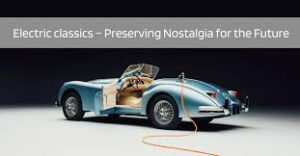
Restoration is often a crucial component of conservation. This process can range from simple cosmetic repairs to complete overhauls. Key considerations include:
- Authenticity: Restorers should strive to use original or period-correct parts to maintain the vehicle’s historical integrity.
- Documentation: Keeping thorough records of any restoration work is essential for preserving the car’s history and provenance.
- Specialized Professionals: Engaging skilled professionals who specialize in classic car restoration can ensure high-quality work that respects the vehicle’s original design and craftsmanship.
Community and Culture
- Classic Car Clubs
Classic car clubs play a vital role in the conservation of vintage vehicles. These organizations foster a sense of community among enthusiasts and provide resources for education, restoration, and preservation. They often organize events, rallies, and shows that celebrate classic cars, allowing members to share knowledge, techniques, and experiences.
- Educational Initiatives
Many museums and educational institutions offer programs that focus on the history of automobiles, including classic car restoration workshops. These initiatives not only educate new generations about automotive history but also promote skills in restoration and maintenance. By teaching young enthusiasts the art of car restoration, we can ensure that the necessary skills and knowledge are passed down.
- Online Communities
The rise of the internet has facilitated the growth of online communities dedicated to classic cars. Forums, social media groups, and dedicated websites allow enthusiasts to share tips, resources, and experiences. These platforms provide a wealth of information on restoration techniques, sourcing parts, and troubleshooting, making it easier for individuals to engage in conservation efforts.
Economic Considerations
- Value Appreciation
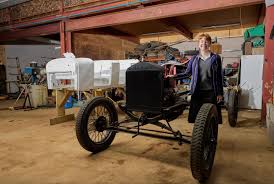
Classic cars often appreciate in value over time, making them not only a passion project but also a potential investment. This financial aspect can encourage owners to invest in conservation efforts, knowing that a well-maintained classic car can yield significant returns. However, it’s important to note that the market can be volatile, and not all classic cars will appreciate at the same rate.
- Supporting Local Economies
Conserving classic cars can support local economies by creating demand for specialized services. Restoration shops, parts suppliers, and automotive artisans can thrive in areas with a strong classic car culture. Additionally, events and shows attract visitors, generating revenue for local businesses.
Environmental Considerations
- Sustainability Through Restoration
While classic cars may not meet modern emissions standards, restoring and maintaining existing vehicles can be more environmentally sustainable than manufacturing new ones. The production of a new car involves significant resource consumption and energy expenditure. By conserving classic cars, enthusiasts contribute to a circular economy that prioritizes reuse and preservation.
- Electric Conversions
As environmental concerns continue to rise, some classic car enthusiasts are exploring the possibility of electric conversions. This involves replacing traditional combustion engines with electric powertrains. While this approach raises debates about authenticity, it offers a way to enjoy classic vehicles in a more environmentally friendly manner, allowing these cars to remain relevant in a world increasingly focused on sustainability.
The Future of Classic Car Conservation
- Generational Transfer
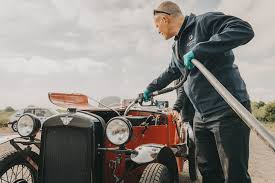
One of the key challenges in conserving classic cars is ensuring their transfer to future generations. Many classic car owners face the dilemma of what to do with their vehicles as they age. Creating educational programs that teach younger generations about the importance of classic cars and how to care for them can foster a sense of responsibility and appreciation.
- Advocacy and Policy
Advocacy for classic car preservation is essential. This includes lobbying for legislation that supports the rights of classic car owners, such as exemptions from stringent emissions standards for older vehicles. Engaging with policymakers to recognize the cultural and historical significance of classic cars can help ensure their protection and preservation.
Conclusion
Conserving classic cars is a multifaceted endeavor that requires a commitment to history, culture, and sustainability. These vehicles are not merely relics of the past; they are vital links to our automotive heritage and reflections of societal values. Through proper storage, routine maintenance, and restoration efforts, we can preserve these masterpieces for future generations to appreciate.
The community surrounding classic cars—encompassing clubs, educational initiatives, and online platforms—plays a crucial role in promoting conservation efforts. By fostering a culture of appreciation and knowledge-sharing, we can ensure that classic cars remain vibrant and relevant in our ever-evolving world.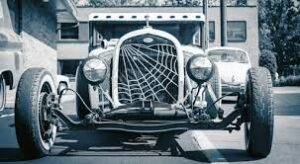
As we navigate the complexities of modern transportation and environmental concerns, the preservation of classic cars serves as a reminder of our automotive legacy. These vehicles are a testament to human ingenuity, creativity, and the enduring love for the open road. By conserving them, we not only honor our past but also inspire future generations to embrace the beauty and significance of classic cars.

